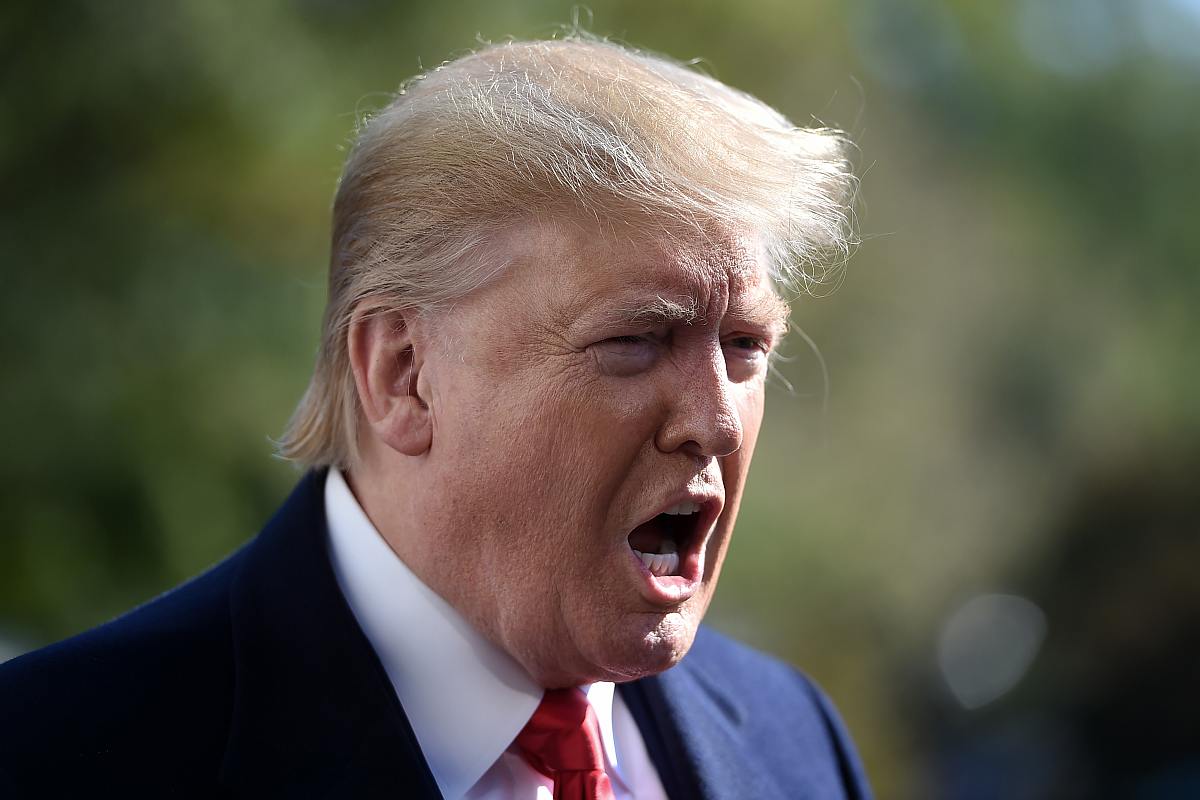As the US House of Representatives voted on Thursday to formalize impeachment proceedings against the president of the United States, Donald Trump called for the unmasking of the anonymous whistleblower on Sunday, whose complaint launched the House impeachment investigation. Trump’s demand, in a tweet, comes amid an intensifying effort by Republican lawmakers to expose the whistleblower and attack his or her credibility.
Described only as an intelligence official who once worked at the White House, the whistleblower was the first to raise concerns about Trump’s attempt to pressure Ukraine to investigate political rival Joe Biden.
Advertisement
“The Whistleblower got it sooo wrong that HE must come forward,” Trump said. “The Fake News Media knows who he is but, being an arm of the Democrat Party, don’t want to reveal him because there would be hell to pay. Reveal the Whistleblower and end the Impeachment Hoax!”
A parade of current and former diplomats and national security officials, however, have since corroborated the essence of the complaint, an apparent attempt to pressure Ukraine to investigate the president’s Democratic opponents.
Whether Trump ordered the withholding of nearly $400 million in crucial military aid to Ukraine to get its new president, Volodymyr Zelenskiy to investigate Biden and his son Hunter, as well as a debunked conspiracy theory involving the Democrats in 2016 in an alleged case of quid pro quo lies at the heart of the impeachment inquiry.
The whistleblower’s lawyer, Mark Zaid, said on Twitter Sunday that his client had made a direct offer to Republican lawmakers to answer their questions in writing. In a twitter thread, Zaid said, “Our job, however, is to protect the anonymity of the whistleblower and the integrity of a process that protects our Constitution and democracy. If Republicans are not interested in that, so be it.”
The offer, made to Devin Nunes, the ranking Republican on the House Intelligence Committee, underscored the whistleblower’s desire that the complaint be handled in a nonpartisan way, Zaid told CBS News.
Recent GOP messaging, led by President Trump (incl this morning), has been to highlight original #WBer & demand disclosure of identity,” Zaid said on Twitter.
Meanwhile, some Republican lawmakers have retweeted speculation in conservative media about the whistleblower’s identity.
Steve Scalise, the number two Republican in the House, said the whistleblower would be the first person his side would call to testify in public impeachment hearings.
Republicans would have the right to call their own witnesses and propose subpoenas, under rules approved by the House for soon-to-be-held public impeachment hearings.
“This is a person who claims to be a whistleblower, but even the IG (inspector general) reported that this person has a political bias,” Scalise said on ABC’s “This Week.”
“There are many reports out there that the whistleblower actually worked for Joe Biden. That concerns a lot of people.” The inspector general of the US intelligence community, Michael Atkinson, investigated the whistleblower’s claims and, while noting “some indicia of arguable political bias,” found them to be “credible” and of “urgent concern.”
On Capitol Hill this week, Lt Col Alexander Vindman, a national security staffer, testified that he had been concerned by what was said in the call between Donald Trump and Volodymyr Zelenskiy, by steps taken to keep it secret and by what he said were inaccuracies and omissions in the published version.
If the House votes to impeach Trump, as would be expected on party lines, his trial would be held in the Senate. Twenty Republican senators would have to vote against the president for him to be convicted and removed which seems unlikely since most of the Republican senators seem to be supporting Trump’s argument.
(With inputs from AFP)











